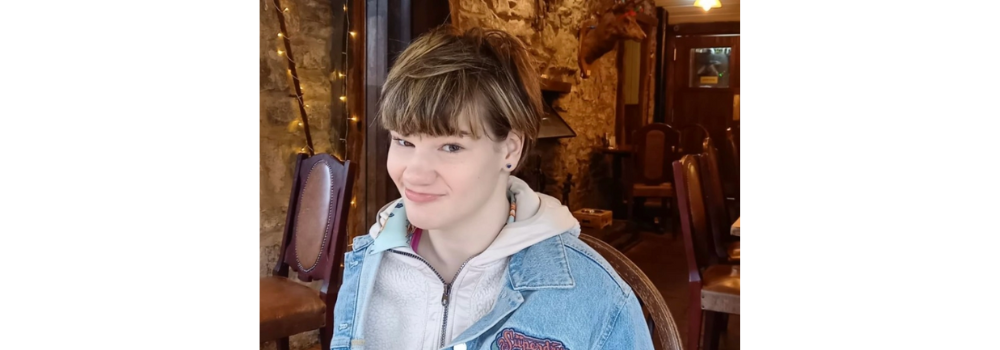As part of Cerebral Palsy Awareness Month, Mhairi shares her story of being an ambulatory wheelchair user and the stigma that she has faced.
My name is Mhairi McKendrick and I have been living with cerebral palsy for 23 years now. As it is Cerebral Palsy Awareness Month, I thought I would share my thoughts on the stigma and misconceptions around being an ambulatory wheelchair user. If you don’t already know the definition of an ambulatory wheelchair user is, from my understanding it is: Someone who can walk but cannot walk for long distances or needs support to do so.
When most people meet me, I am in my wheelchair, because I meet most new people in my life at college. This definitely changes their view of me as a member of the class, they don’t involve me as much as the other people in my class, I should mention that I am the only person in my class that uses walking aids or use a wheelchair. It could just be a personality clash, but I’m not so sure. It doesn’t help that I am quite introverted when in my everyday life.
The way they treat me just shows that the stigma of fear of the unknown is still rampant in today’s society. It kind of annoys me because I have done nothing to my knowledge to make them feel weird around me. Like when I drop something when I am sitting in my wheelchair, sometimes I can pick up the item by getting out of my wheelchair but most of the time I have very little to no energy to do this. When this happens I have to ask my classmates for help and I cannot help but think that they’re thinking ‘Why does she need help?? she can walk!’ but they never ask me why I need the help.
From family testimonials, I know that it took me until I was 3 years old to walk unaided for 100 meters. This was a massive relief for my parents and a big raspberry to the face for the doctor that told them I would probably never walk or talk independently. As you now know I can do both of those things. One of the biggest blessings that has helped me maintain my stamina during my childhood specifically week-long physio that I had access to from the age of 2 till I finished high school. Without them I would not have kept the amount of stamina that I have.
Throughout the pandemic and even then, I have definitely lost a lot of it through not having the motivation or opportunity to walk during that time. The biggest stigma I have faced as a part time wheelchair user is something I touched on earlier- the confusion over why some ambulatory people need wheelchairs. For me its 2 factors: pain and energy levels.
Sitting here and writing this article: my ankles ache, my lower back is throbbing and I think that if I try to stand up I may just fall over or severely stumble over my own feet. It could be a whole other reason that someone who can walk makes use of a wheelchair. It is up to us as a society to normalise every version of wheelchair using there is. Not all wheelchair users are paralysed. Not all people who use a wheelchair are unable to communicate.
Here are some statistics about Cerebral Palsy: 1 in 3 are unable to walk. About 40-50 percent of individuals with cerebral palsy are wheelchair users.
The energy used to move by a person with cerebral palsy is three to five times more than that of a person without cerebral palsy. I am extremely grateful for the opportunity I have had throughout my life. So that I gained the skill of walking and had access to a manual wheelchair so I could access the world.


